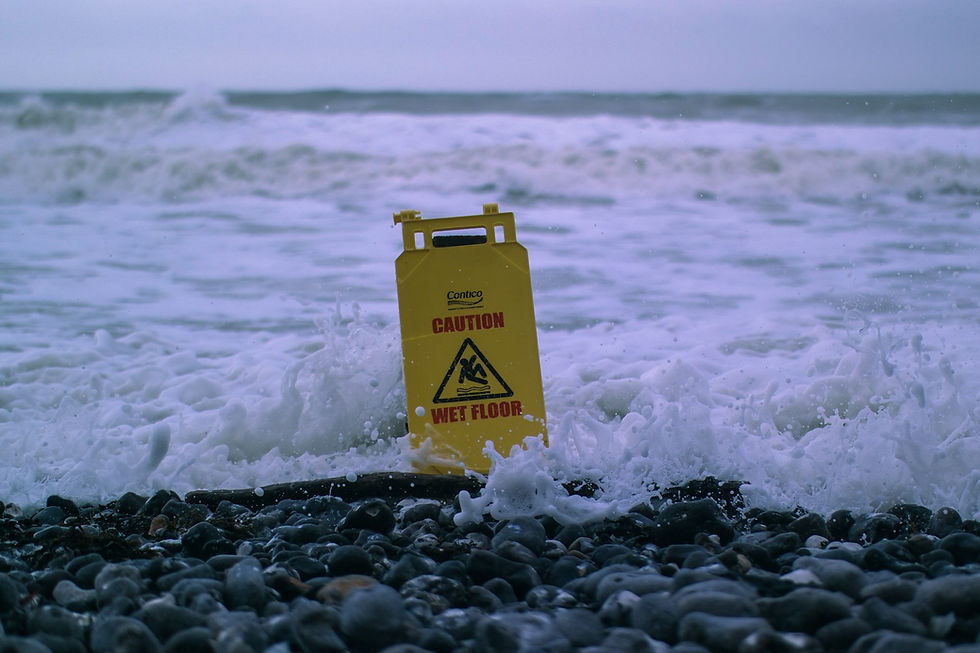Possibilities for fear remain endless
- mburberry8
- Sep 17, 2011
- 4 min read
In the contemporary vocabulary of public life, the term climate change signals the idea of an alarming threat, which in turn demands that something must be done immediately.
This script is not used simply by environmentalists insisting that we adopt a low-carbon lifestyle. Virtually any campaign on any issue can gain a hearing through adopting the tactic of linking their cause to that of raising concern about climate change. An example of joined-up scaremongering was provided by the Australian Climate Institute, which last month published a report, A Climate of Suffering.

A Climate of Suffering argues that climate change has a devastating effect on the mental health of Australians, particularly of children. The report suggests that catastrophic weather episodes are causing anxiety and insecurity for Australian children. As an illustration of this claim, it indicates that one in 10 primary school pupils exhibited symptoms of post-traumatic stress in the aftermath of Cyclone Larry in 2006. The transformation of climate change into a causal agent of childhood trauma is only one example of the numerous health, social and security problems blamed on global warming.
Joining up an alleged health problem with scare-mongering about the environment sometimes takes on an extravagant form. Take a “flesh-eating virus”: scary enough in its own right. Then link it up with contemporary anxieties about climate change, and we get a headline like “Global warming ‘spawns flesh-eating virus’ in Britain”.
According to a study at the University of Hull, published in August 2007, people suffering from leishmaniasis - which is spread by sandflies - will increase dramatically in the future. Ross Boyle of the University of Hull commented that “global warming and the military presence in countries such as Iraq and Afghanistan mean that this horrific and debilitating disease is affecting more people than ever before”.
One predictable way of raising alarm about “flesh-eating” bugs is by inviting the public to imagine their dreadful effect on children.
Climate change probably comes out on top among the competing scare appeals. So it is not surprising that increasingly it becomes intertwined with a large number of other panics. So the Worldwatch Institute, an American environmentalist organisation, has hijacked the anti-terrorist agenda to promote its own objectives. In its report Climate Change Poses Greater Security Threat than Terrorism, it argued that the “parallels with terrorism are compelling”. It added, “as with terrorism we know that changes will occur, but not when or where they will strike”. Almost seamlessly, “parallels” are turned into a mutually reinforcing scare story.
Advocacy groups promoting cycling and opposing the crime of driving a big car, security experts selling consultancy and health professionals “raising awareness” about a multitude of climate change illnesses are only a small sample of groups that use our concerns about the effects of global warming to promote their cause. Numerous professionals are continually warning us that climate change is making us ill. They claim global warming will lead to an increase in the rates of cardio-respiratory disease, diarrhoea and insect-borne diseases such as malaria.
It appears that anything remotely objectionable can be turned into a cautionary tale about climate change. Joined-up scaremongering does not follow any predetermined logic or an obvious path. Instead of any clear causal connection, the links between one scare and another are often established through dramatic gestures and rhetorical manipulation.
Promoters of scares consciously pursue tactics that reinforce their claims through linking up with other causes. So in early 2008 some scientist warned of a “new plague of jellyfish” off Spain’s Costa Brava, a popular holiday destination. Why? Because global warming has created ideal conditions for jellyfish to breed.
Sometimes it is difficult to think of any scares that cannot be joined up with climate change. Take the discovery of the danger that global warming encourages people to have more barbecues which in turns represents a new health threat. In January 2006, Paul Hunter of the University of East Anglia warned that because of the heat people had more barbecues, which in turn increased the number of casualties of food bugs and salmonella infection. And just to scare us a bit more he warned that higher temperatures could lead to a few cases of malaria and that heavy rains would lead to more cases of diarrhoea-inducing cryptosporidium. Back in August 2006 the London-based Institute for Public Policy Research published a report that drew attention to the alarmist language used to discuss climate change. The report, Warm Words, characterised the practice of adopting the vocabulary of fear as tantamount to “climate porn”.
It criticised the tendency of some media outlets to represent climate change in the language of fatalism as “awesome, terrible, immense and beyond human control”.
It is because climate change resonates with 21st-century existential insecurity that it has gained such a prominent role in the scaremonger’s vocabulary. In contemporary times moral and existential problems are frequently interpreted as sins against the environment. That is why so much of the discussion surrounding climate change has a dogmatic moralising quality.
Fortunately, we don’t believe everything that scaremongers inflict on us. People are still having barbecues and parents know that children do not turn into traumatised patients because of the heat.
But scaremongering matters because it shapes the way we think, behave and act. It does not matter whether what frightens us is real or imaginary. Many of the threats that frighten us have a capacity to alter our daily routine and change the way we live our lives. It encourages us to turn routine technical problems into existential threats and it distracts communities from making the most of the opportunities available to them.
Worse still, it fosters a climate of insecurity where we can sometimes lose confidence in our capacity to control our destiny.
Published in The Australian





Comments